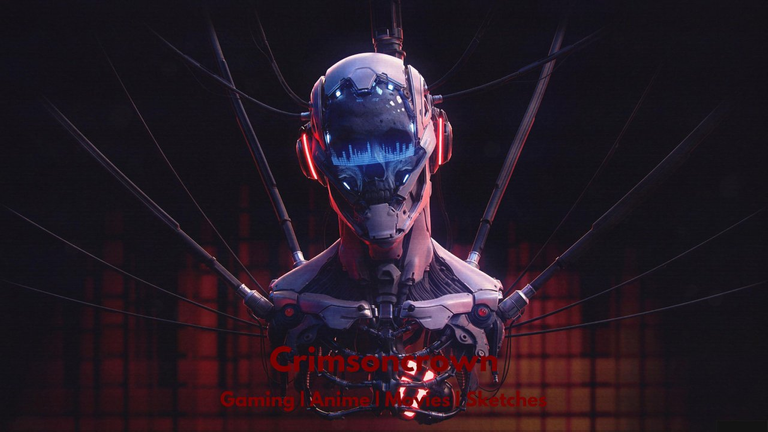Trying To Set Things Right | Moral Ethics Of Being Omnipotent - Dororo
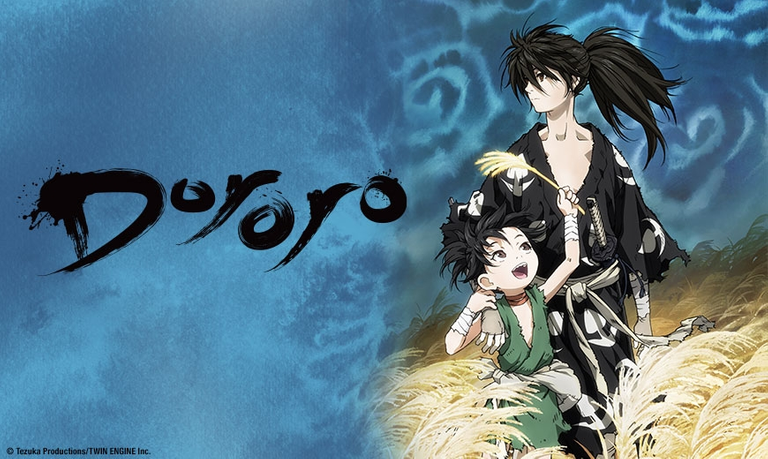
| Anime Type | Genre | Studio |
|---|---|---|
| Shonen | Supernatural/Historical | Mappa/Tezuka |
Contemporary stories like these are what make anime a very recognizable medium, it has high emotional stakes, greater moral themes, and amazing characters to root for. Dororo is a personal favorite of mine, it tucked into my heartstrings right after the last episode ended.
Dororo is a reimagining of the classic Dororo and Hyakkimaru anime from 1969, which was also an adaptation of the manga from 1967. There have been other adaptations like a live-action movie, but none of them was quite as different as this new one from studio MAPPA(alongside Tezuka Productions).
It's not a perfect adaptation, as I've seen some animation sequences and scenes that were kind of spotty. But outside of these nitpicks, this show was really a rollercoaster, and even at times, surprised me with the depth of its world based on feudal Japan.

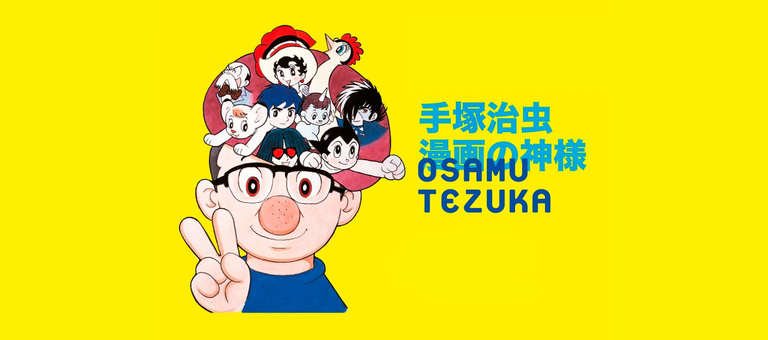
Dororo was created by Osamu Tezuka, who wrote and illustrated the manga right before adapting it into an anime. Before Dororo, Tezuka was considered a god of sorts for both the anime and manga worlds. His other best-known works were Simba, Astro Boy, and Black Jack. Dororo on the other hand, he didn't finish the manga and so anything made from episode 17 was based on his own original writing.
The original story was kind of anthropological when it came to subplots and had some character choices that I personally didn't agree with, the overall story in nature was about good finding ways to overcome evil, it was a pretty archaic right vs wrong narrative. The characters were mostly used as plot devices, and extensions to story agendas.
Fast-forward to the 2010s, MAPPA with Kazuhiro Furuhashi directing the anime, decided to focus primarily on the relationship between the two main characters. With modern animation and a different art style, the anime was good to go.
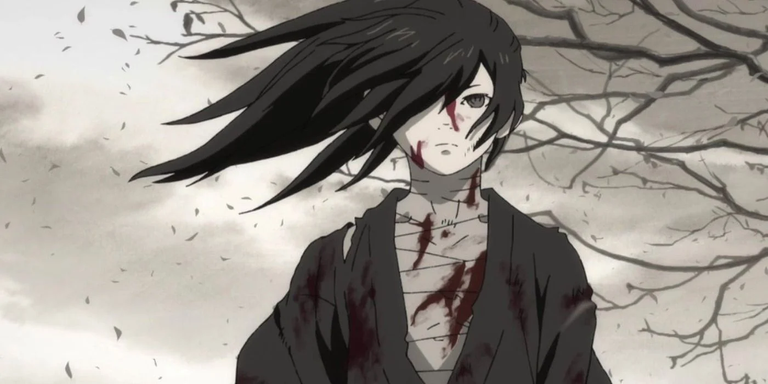
Tezuka unfortunately died back in 1989, so he wasn't able to oversee the project or provide some insight considering this was based on his original work. But the new adaptation has paid its respect without it deviating entirely from the source material.

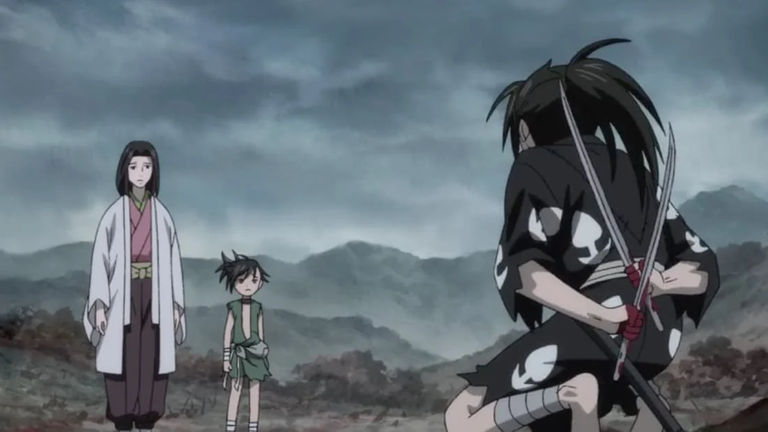
Hyakkimaru goes on a journey to recover 12 of his lost organs, each specifically given to demons that live in his realm, in the Sengoku period of Japan. As a child sacrificed to the demons in order to save the land and his kingdom from destitution, Hyakkimaru's father, feudal lord Daigo gives his first child in order to receive the demon's blessings upon said land.
This of course had a ripple effect where the demons reside in his land and causes all sorts of issues. Namely laying control of the land and manipulating people to their whims. Even other demons that are just primates and would eat people they find.
Despite him being completely disabled, a doctor took him in and gave him prosthetics, he also has a 6th sense where he can find objects around him and lifeforce of which he can determine whether they're friend or foe. With all of this in mind, the doctor trained him well enough to be ready on his journey.
From this journey, he meets a girl-pretending-to-be-boy Dororo. An orphan whose parents died fighting in a rebellion against the feudal lord himself. Dororo is the upbeat, sly, and cunning counter to Hyakkimaru's silent, and focused type. Both develop an endearing relationship that carries their journey across many kinds of perils.
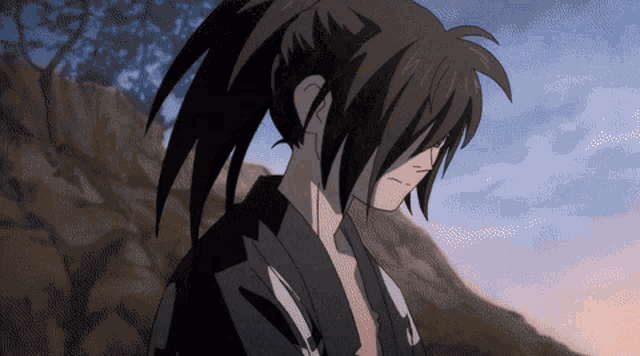
And that's the thing with the show, it mostly focuses on them and how they deal with moral grey areas, of which there's a lot compared to the original anime. It's much more subtle and nuanced, but the main characters' attachment with each other is even stronger as they progress through each episode.
There's a subplot where Hyakkimaru finds a girl he likes and he explores more of his emotions, which adds depth to a disabled boy with demon bloodlust. Dororo, even if she's younger than him, acts as his guide since he does not possess the sense of normal human beings like seeing, hearing, feeling, even speaking as demons are possessing them. So in order to return them back, he needs to defeat the demon.
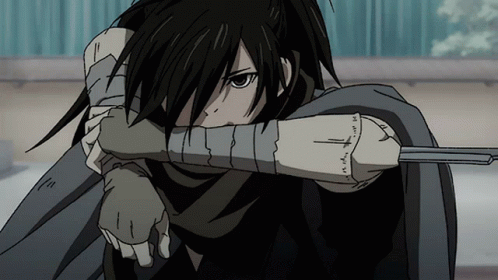
This isn't a show with happy endings, as life and death is a subject matter that is always touched on as most people around them die. Poor Hyakkimaru doesn't even get the happy ending he deserves with the girl he met, which is by the far the saddest thing you can find out about this character.
Despite how much of a gut punch the world of Dororo is, there's this kind of hope and optimism that is unwavering despite the odds stacked against them. You have a good list of side characters that carry some of the episodes in the show, and even with an enemy like the demons and his father himself, they were never the central focus of the story. It was all about finding themselves in such a grim world they're stuck in. Dororo is also pretty grounded in its storytelling.
It has the best fighting sequences and top-quality animation production. Though I can tell at times they've cut corners when I saw blurry sketch backgrounds, which looked pretty underwhelming. Even found a few gaping plotholes as well, despite all that, I have high praise for this series. Go check it out if you can.
